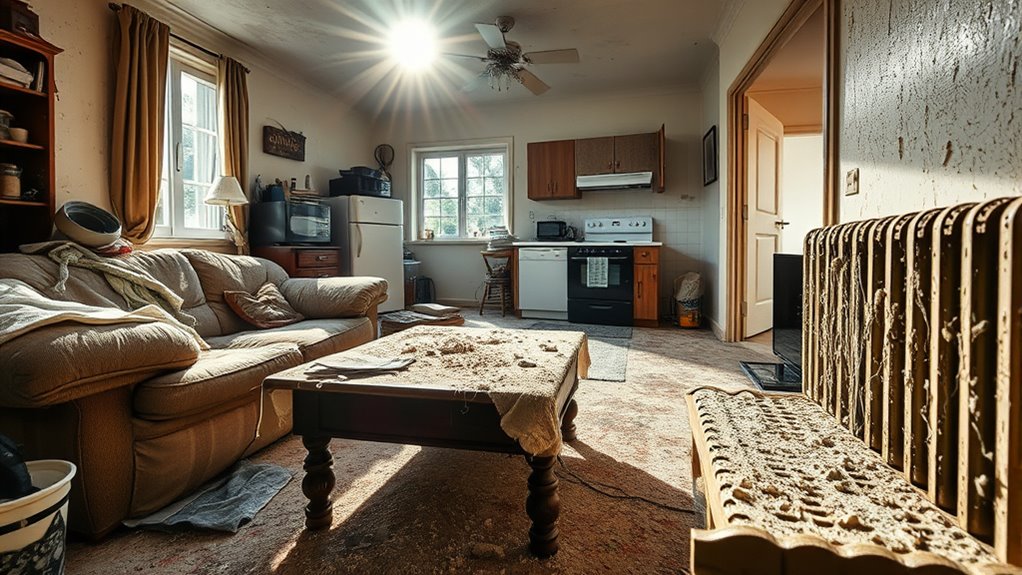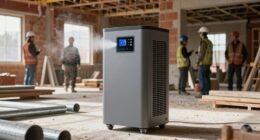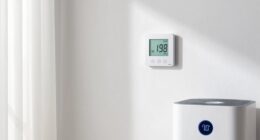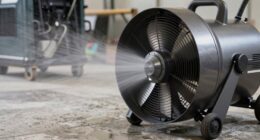Neglecting regular cleaning can quietly lead to costly repairs, health issues, and a drop in your home’s value. Dirt, dust, and mold can damage surfaces, electronics, and HVAC systems, often requiring expensive fixes. Plus, a dirty home can worsen allergies and respiratory problems, increasing medical bills. Over time, these hidden costs add up, making your home less safe and valuable. Keep going to uncover even more ways cleaning saves you money and stress.
Key Takeaways
- Neglecting cleaning accelerates wear and tear, leading to costly repairs and early replacements of appliances and surfaces.
- Dirt, mold, and allergens increase health risks, resulting in higher medical expenses over time.
- A dirty home reduces productivity and mental well-being, potentially causing costly stress-related issues.
- Lack of regular cleaning can damage property value, increasing expenses for repairs and renovations.
- Maintaining cleanliness prevents small issues from escalating, saving money on extensive future repairs.
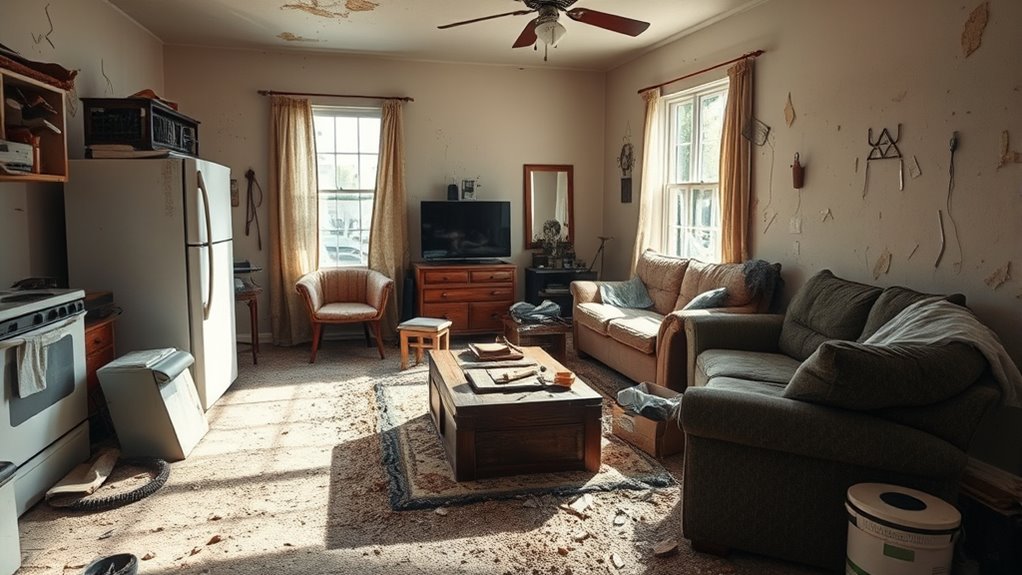
A dirty home may seem like a minor inconvenience, but it can secretly cost you more than you realize. When clutter and grime pile up, they threaten not just your comfort but also your wallet in subtle ways. One of the biggest hidden costs is the impact on your home maintenance. Neglecting regular cleaning accelerates wear and tear on surfaces, appliances,, and fixtures. For example, dust and dirt can corrode electronics or clog HVAC systems, leading to costly repairs or replacements sooner than expected. Mold and mildew, which thrive in unclean environments, can damage walls, ceilings, , and flooring, forcing you to spend more on repairs down the line. Over time, neglecting routine cleaning may turn minor issues into major expenses that could have been avoided with consistent upkeep.
Neglecting regular cleaning accelerates wear, damages surfaces, and leads to costly repairs over time.
Beyond physical damage, health risks are a significant concern that often goes unnoticed until it’s too late. A dirty home is a breeding ground for bacteria, mold, dust mites, and other allergens. These can cause or aggravate respiratory problems, allergies, and asthma, especially if you or your family members already have sensitivities. The presence of mold, in particular, can be costly to remove and may require professional remediation. Poor air quality caused by dirt and clutter can also lead to chronic health issues, increasing your medical bills over time. The more neglected your home is, the higher the chance that these health risks will escalate, forcing you to seek medical attention and spend money that could have been saved with proactive cleaning.
But the costs don’t stop there. A messy environment can reduce your overall quality of life, decreasing productivity and increasing stress. When your home is cluttered and dirty, it becomes harder to relax or focus. This mental toll can lead to missed opportunities or even job-related issues, indirectly costing you money. Additionally, a disorganized space can make it difficult to perform routine home maintenance tasks efficiently, causing small problems to turn into bigger, more expensive issues. Regular cleaning isn’t just about appearances; it’s a smart investment in your home’s longevity and your health. Furthermore, understanding the role of attention in the creative process can help you develop better habits for maintaining a clean and organized environment, ultimately saving you money and stress in the long run.
In the end, staying on top of home maintenance through consistent cleaning saves you money by preventing costly repairs and minimizing health risks. It preserves your property’s value, reduces medical expenses, and improves your overall well-being. That seemingly simple task of tidying up isn’t just about aesthetics — it’s a vital step in protecting your financial and physical health in the long run.
Frequently Asked Questions
How Often Should I Schedule Professional Cleanings?
You should consider your home’s size, lifestyle, and habits to determine your ideal scheduling frequency. For most households, a cleaning schedule of once every 2-4 weeks works well to maintain cleanliness and prevent buildup. If you have pets, allergies, or high traffic areas, more frequent visits may be necessary. Regular professional cleanings keep your home healthier, save you money long-term, and guarantee a consistently fresh environment.
What Are the Health Risks Associated With a Dirty Home?
A dirty home can pose serious health risks, as germ buildup and allergen accumulation increase your chances of illness and allergies. You might experience respiratory issues, skin irritations, or asthma flare-ups. Regular cleaning helps reduce these hazards by removing germs and allergens, creating a healthier living environment. Don’t overlook the importance of maintaining cleanliness; it directly impacts your well-being and can prevent costly health problems down the line.
Can Cleaning Reduce Long-Term Repair Costs?
Cleaning regularly helps reduce long-term repair costs by preventing buildup of dirt and grime that can damage your home and appliances. When you keep surfaces and appliances clean, you improve maintenance costs and extend appliance longevity. This proactive approach minimizes the need for costly repairs or replacements later on. By staying on top of cleaning, you protect your investment and save money over time, ensuring your home stays in great shape.
How Does Dirt Impact Indoor Air Quality?
Dirt markedly impacts indoor air quality by increasing airborne allergens and promoting mold growth. When you neglect cleaning, dust, pet dander, and dirt particles become airborne, aggravating allergies and respiratory issues. Mold thrives in moist, dirty environments, releasing spores that worsen indoor air quality. Regular cleaning reduces these risks, helping you breathe easier and maintain a healthier home environment, ultimately saving you money on health-related expenses.
Are Eco-Friendly Cleaning Products More Cost-Effective?
Eco-friendly cleaning products often save you money in the long run because they offer eco savings and product longevity. They tend to be concentrated, so you use less per cleaning, reducing your overall expenses. Plus, their gentle formulas help prolong the life of your surfaces and appliances, lowering repair or replacement costs. While they may cost more upfront, their durability and efficiency make them a smarter, cost-effective choice over time.
Conclusion
Keeping your home clean is like tending a garden—you may think it’s just about appearances, but neglecting it invites weeds and decay that cost more in the long run. Regular cleaning catches small issues before they grow into costly repairs or health problems. By staying proactive, you protect your wallet and your well-being, turning your home into a safe haven rather than a hidden trap. Remember, a clean home isn’t just tidy—it’s a smart investment in your life.

